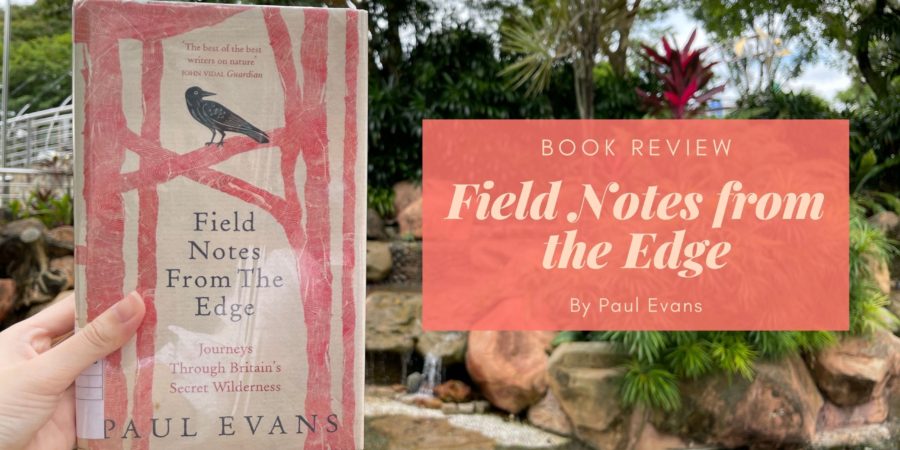“Personal stories are about moving from place to place, and these places can be internal as well as out there in the world.”
This is the first book that has made the jump from Pinterest to my TBR and finally to actually being read and if books could receive congratulations, I’d give it one. I occasionally browse Pinterest to look at pretty covers (perhaps it’s unsurprising that the books are mostly nature or fantasy books) but I’ve never thought of using it as a TBR source until now! Judging a book by its cover indeed…
Field Notes from the Edge is a collection from Evans as he explores the unexpectedly wild places. It’s a difficult endeavor, because as Evans says:
“Wild is a quality of Nature, a mode of existence and its life is not captured by the managerial language of biodiversity, neither is the wild a destination. Wild Nature is something words are meant to tame. Words define, order, categorise and oppress; wildness is too slippery for that, too indomitable and so it’s a fugitive from language.”
And so, Evans brings us to the unexpectedly wild places – his town and garden as flying ants migrate, a path for quarry workers, the ruins at Ludlow Castle, a little seaside town, and more. The book is both an intimate look at the unexpected places that nature can be found and a wide look at the history and science behind nature. I found the language to be beautifully fluid, as Evans moves between his observations and his research that was sparked by his observation. I was reminded of In the Land of Giants by Max Adams in the sense that both books move seamlessly between the physical location and their thoughts/history.
“Nature has such a profound effect I struggle to describe it. Language becomes inadequate and terms such as ‘sacred’ or ‘magical’ have lost their potency and can be as cliched as ‘stunning’, incredible’, or ‘fantastic’. I struggle with the intimate language I use to describe Nature, trying not to make my emotional responses appear trite or twee. Sometimes this works well, and sometimes not, and so to avoid the risk of embarrassing purple there’s a counter tendency to stand back, as a detached scientific observer or journalist might do, and recount the experience as if there were no emotional connection. This is an abdication of responsibility: bearing witness, being truthful, requires emotional honesty.”
With regards to the language, I found it to be beautiful. Like Evans says, I can see how easily the prose can be purple (or appear purple, to the reader – I think we all have different standards for what purple prose is), and since I like this book, I really admire his command of the written language. I think he manages to describe the beauty of nature without being too remote or too fanciful.
Lastly, it may not be a surprise to you that I picked up this book because the cover had cottagecore vibes to me. After reading this, I think that this is a winter cottagecore book. It sounds weird, but I can see this book being cosy only if I’m reading it in front of a roaring fire/under a kotatsu in the middle of winter, experiencing the thrill of nature while already feeling very cosy.

This sounds like such a beautiful book and I totally get the “wintercore” idea!
Yessss! I’m glad I make sense!